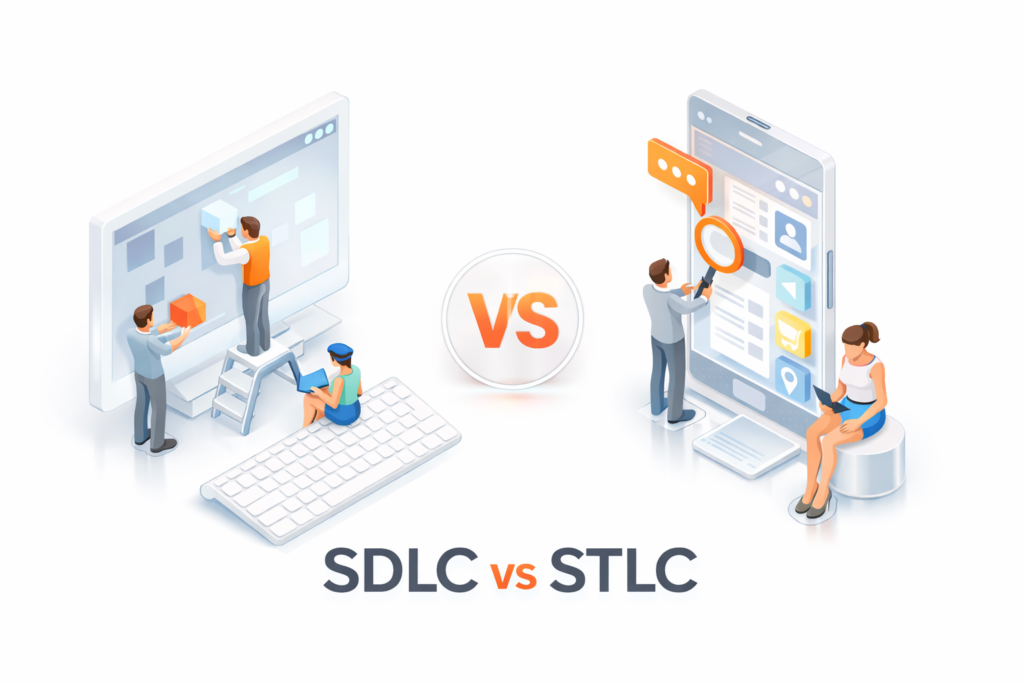When launching a product, the project team needs to ensure users can install it effortlessly. That’s why it’s crucial not to miss out on tasks like installation testing. These tests check that the installation process is bug-free, regardless of the device or operating system that runs it.
This post will offer business owners, specialists of development testing in software engineering, QA specialists, and development teams a full rundown on why installation testing is important for a successful, revenue-generating product launch.
What Is Installation Testing?
A QA specialist ensures that the app supports silent, unattended, clean, automated, and any other type of installation. In a nutshell, these are properties of installation testing process:
After the team validates the app installation, QA professionals check the software removal process for security issues or residual files.
The Goal of Installation Testing
Installation testing has a rather narrow yet vital scope — to ensure there are no roadblocks that prevent end-users from using the software. Here are the main goals of the process:
Software and mobile app installation testing validates the successful completion of the installation and removal of the software, upgrading or restoring it.
Challenges That Can Impact the Installation Testing Process
Installation testing can, at times, get chaotic. The most common pitfalls testers face are:
Installation Testing Process
Installation testing is a multi-dimensional activity since the testing team needs to validate the environmental parameters, as well as the implementation and removal flows. Often, teams with SRE responsibilities play a crucial role in ensuring the reliability of these processes. Using a powerful tool like the JMeter cloud load testing tool allows teams to run distributed load tests efficiently, ensuring smooth installation and scalability. The full list of types of installation testing depends on the scale of the project and the range of business requirements teams have to comply with.
In a nutshell, these are the steps testers need to take to validate the product readiness for a release — feel free to use the described testing plan below with your project development.
Validating the ability of the application to calculate minimum disk space
One of the most important installation testing prerequisites is that of validating the ability of the application to calculate the minimum disk space needed for installation. The testing team also needs to ensure that the installer can handle the processes that require more disk space.
Validating the relevance of the keys in the registry
During the installation or removal of the application, there has to be no key registry corruption. All the keys in the registry should be relevant to the configuration that’s being tested. When the software is deleted from the system, the key registry should be wiped out as well.
Validating the structure of files in the file system
After a user has installed the application, a device should get all application data. A testing team needs to ensure the software files are stored at ‘default’ or chosen location. As per rule, there’s a dedicated ‘temp’ folder for every TMP file. All files, stored in the file system, should contain a relevant version number of the software. Once the software is uninstalled, the file system should store no residual application files.
Validating product update installation
A smooth product update means a user can reinstall the application when the older version is already installed on the device. Testers also make sure the software can be installed regardless of whether it has the distributed (software components are located on different servers) or consolidated (all software components located on a single server) configuration. Similarly, software testers ensure that the partial installation of selected components and updates can be successful.
Ensuring a safe uninstallation of the entire app, a patch, or a component
While testing the removal flow, QA professionals need to ensure that a user can easily delete the software with a distributed or consolidated configuration. Other than that, testers make sure that a component, a patch, or update can be removed from software in a selective manner.
Installation Testing Service with PFLB
To make sure you’re not missing out on active users due to the errors that occur during the installation of your product, contact PFLB for installation testing services. Our quality assurance specialists have years of working experience in testing small-scale and large-scale applications.
PFLB is a trusted testing service provider — during the last 10 years, we delivered qa in software testing for over 500 companies from all domains — including finance, retail, healthcare, technology, and more.
If you’re looking for skilled, dedicated installation testing professionals, leave us a message. Take a look at our portfolio to know what kind of projects our company tackles!



